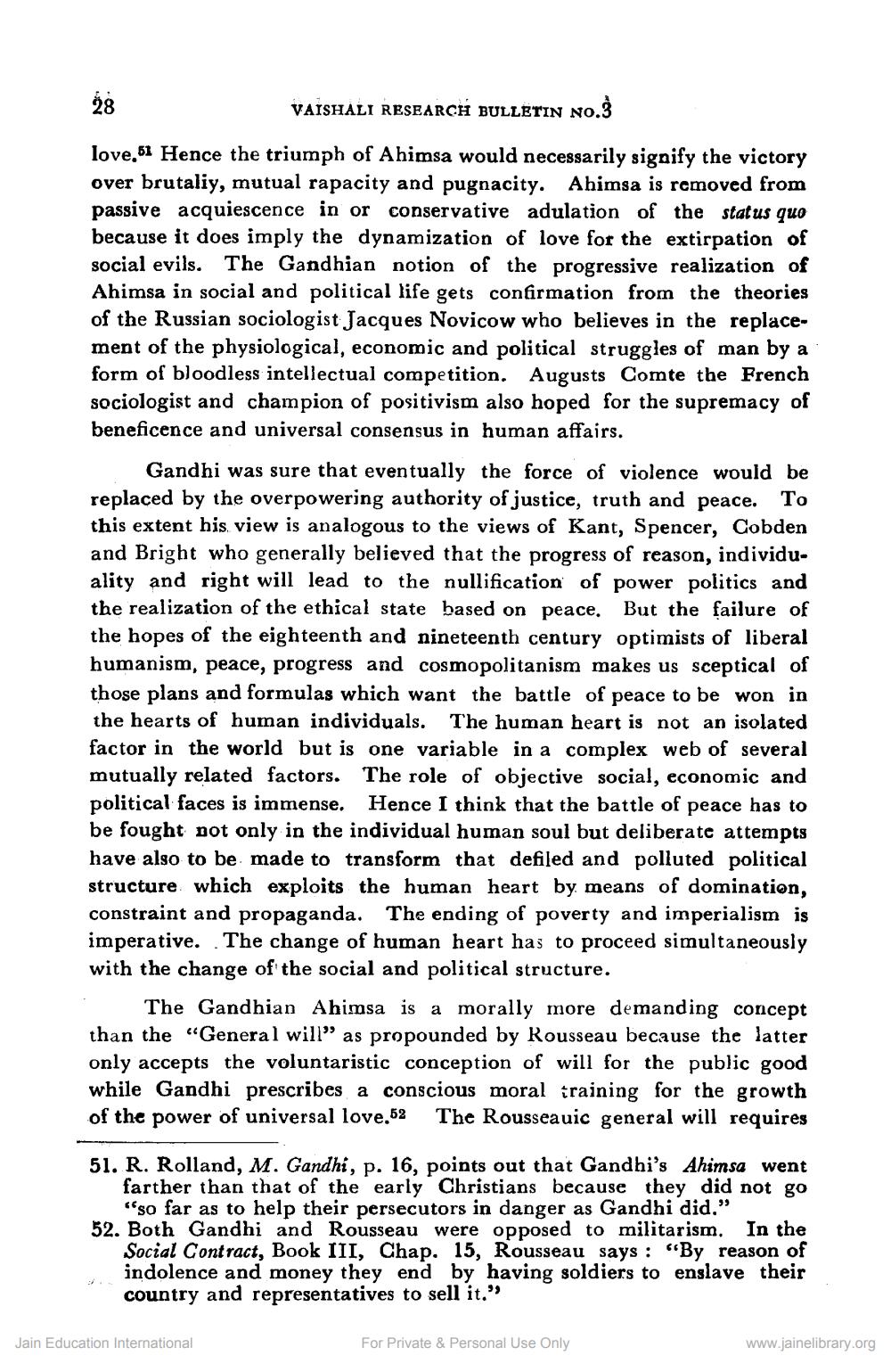________________
VAISHALI RESEARCH BULLETIN NO.3
love. Hence the triumph of Ahimsa would necessarily signify the victory over brutaliy, mutual rapacity and pugnacity. Ahimsa is removed from passive acquiescence in or conservative adulation of the status quo because it does imply the dynamization of love for the extirpation of social evils. The Gandhian notion of the progressive realization of Ahimsa in social and political life gets confirmation from the theories of the Russian sociologist Jacques Novicow who believes in the replacement of the physiological, economic and political struggles of man by a form of bloodless intellectual competition. Augusts Comte the French sociologist and champion of positivism also hoped for the supremacy of beneficence and universal consensus in human affairs.
28
Gandhi was sure that eventually the force of violence would be replaced by the overpowering authority of justice, truth and peace. To this extent his view is analogous to the views of Kant, Spencer, Cobden and Bright who generally believed that the progress of reason, individuality and right will lead to the nullification of power politics and the realization of the ethical state based on peace. But the failure of the hopes of the eighteenth and nineteenth century optimists of liberal humanism, peace, progress and cosmopolitanism makes us sceptical of those plans and formulas which want the battle of peace to be won in the hearts of human individuals. The human heart is not an isolated factor in the world but is one variable in a complex web of several mutually related factors. The role of objective social, economic and political faces is immense. Hence I think that the battle of peace has to be fought not only in the individual human soul but deliberate attempts have also to be made to transform that defiled and polluted political structure which exploits the human heart by means of domination, constraint and propaganda. The ending of poverty and imperialism is imperative. The change of human heart has to proceed simultaneously with the change of the social and political structure.
The Gandhian Ahimsa is a morally more demanding concept than the "General will" as propounded by Rousseau because the latter only accepts the voluntaristic conception of will for the public good while Gandhi prescribes a conscious moral training for the growth of the power of universal love.52 The Rousseauic general will requires
51. R. Rolland, M. Gandhi, p. 16, points out that Gandhi's Ahimsa went farther than that of the early Christians because they did not go "so far as to help their persecutors in danger as Gandhi did.” 52. Both Gandhi and Rousseau were opposed to militarism. In the Social Contract, Book III, Chap. 15, Rousseau says: "By reason of indolence and money they end by having soldiers to enslave their country and representatives to sell it."
Jain Education International
For Private & Personal Use Only
www.jainelibrary.org




